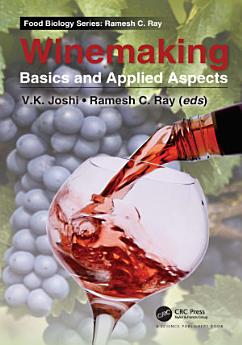Winemaking: Basics and Applied Aspects
Rreth këtij libri elektronik
The preparation of wine involves steps from harvesting the grapes, fermenting the must, maturing the wine, stabilizing it finally, to getting the bottled wine to consumers. The variety of cultivars, methods of production, and style of wine, along with presentation and consumption pattern add to the complexity of winemaking. In the past couple of decades, there have been major technological advances in wine production in the areas of cultivation of grapes, biochemistry and methods of production of different types of wines, usage of analytical techniques has enabled us to produce higher quality wine. The technological inputs of a table wine, dessert wine or sparkling wine, are different and has significance to the consumer. The role played by the killer yeast, recombinant DNA technology, application of enzyme technology and new analytical methods of wine evaluation, all call for a comprehensive review of the advances made.
This comprehensive volume provides a holistic view of the basics and applied aspects of wine production and technology. The book comprises production steps, dotted with the latest trends or the innovations in the fields. It draws upon the expertise of leading researchers in the wine making worldwide.
Rreth autorit
Prof. V.K. Joshi, M.Sc., Ph.D (Micro), Fellow Biotech Research Society of India, Fellow Indian Society of Hill Agriculture, is an eminent scientist and academician; editor/co-editor writer of over 300 publications including books, research, review papers, book chapters and editor of journals including International Journal of Food and Fermentation Technology is a wine consultant, with about 40 years’ experience including food fermentation and oenology. He is a former Prof and Head, Dept. of Postharvest Technology and later Food Science and Technology, University of Horticulture and Forestry, Nauni-Solan, India, serving as an adjunct professor (University of Biotechnology Management, Solan, India), besides assignments like membership of Board of Studies of universities, panels of Food Safety Standard Authority of India, chairmanship of Equal Opportunity Cell, adviser to Horticultural Produce and Marketing Corporation, Director Summer School. Prof. Joshi has received several awards for his research and teaching contributions.
Dr. Ramesh C. Ray is a former Principal Scientist (Microbiology) and Head of the ICAR- Central Tuber Crops Research Institute (Regional Centre), Bhubaneswar, India. He has 35 years of research experiences in agriculture and food microbiology, has published 120 research papers in international journals, 20 reviews and policy papers, 60 books chapters, edited 12 books and authored 3 books, and is the series editor CRC Taylor and Francis on series on Food biology. He is a national expert and member of the review committee of Department of Science & Technology and Department of Biotechnology, Government of Odisha and India, and a distinguished fellow of the prestigious National Academy of Agricultural Sciences, New Delhi, India and 10 other scientific societies.





